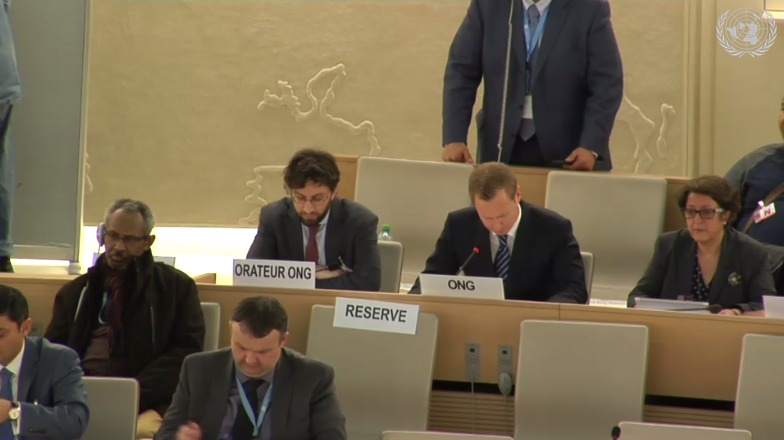On Wednesday 14 March, during the 37th session of the UN Human Rights Council session, ADHRB’s Saudi Advocacy Associate delivered an intervention on behalf of ADHRB during the Interactive Dialogue with the Special Rapporteur on minorities. In his intervention, the Associate discussed Saudi Arabia’s systematic discrimination against its Shia minority population, in particular through education and the schools. Click here for a PDF of his intervention.
Mr. Rapporteur,
Alsalam and ADHRB thank you for your first report to the Council and for laying out your vision for your mandate as well as your priorities. We too are particularly concerned with the issue of hate speech, xenophobic rhetoric, and incitement to hatred against minorities.
For example, Saudi Arabia systematically discriminates against minorities, in particular its Shia minority population. This discrimination, which plays out in the employment sphere of hiring and firing, in politics, in the media, in access to cultural sites, and in the judicial system, is fostered and underpinned by a nationwide educational program that teaches slander and prejudice against minorities, especially Shia Muslims.
Despite repeatedly pledging for many years to reform school textbooks to address hate speech, the government has failed to do so. Saudi textbooks still slander, discriminate against, and degrade religious minorities, in particular Shia Muslims. Textbooks teach that Shia are non-believers and infidels, and systematically degrade Shia religious practices.
These school lessons are perpetuated throughout Saudi media – through state sponsored and state run news channels, television programs, and religious television stations – which spews hate speech amounting to incitement to hatred against minorities. State appointed clerics and religious scholars use their state sponsored platforms to stigmatize Shia beliefs and practices while also accusing Shia of being enemies and participating in a conspiracy against the state. In recent years and with the rise of social media, these clerics have taken to Twitter to spread their messages of hate and to slander members of the Shia community.
Mr. Rapporteur, minorities often face significant barriers to the full enjoyment of their human rights, in particular their right to peacefully practice their religion. These barriers are exacerbated by state sponsored discrimination like hate speech. Therefore, what steps can states take to eliminate hate speech, xenophobic rhetoric, and incitement to hatred?
Thank you





